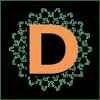Abstract
In 1792 actress, playwright, novelist, and later drama critic Elizabeth Inchbald wrote her first and only tragic drama – a violent, bloodthirsty and politically charged composition titled The Massacre. The tragedy was printed in London during the height of revolutionary violence in France, and can be seen to engage heavily with the country's debates regarding female militancy. Between 1791 and 1792, criticisms of the vulnerability imposed upon women as a result of their restricted physical agency were being composed and declared by a number of women in France, eager to grant their sex the right to bear arms. Women including Theroigne de Mericourt, Claire Lacombe, and Pauline Leon, each spoke or wrote in favour of the need for women to be granted military rights, and each made the point that if denied the request, women would be left entirely defenceless against the violent attacks launched by their political, male enemies. Gender-conservative party leaders prohibited women from bearing arms on account of the suggestion that women's involvement in military activism would detract from their familial duties. Yet Inchbald's tragedy contests this notion, by implying that it is not female militancy, but female defencelessness, which is depriving the nation of devoted wives and mothers.
How to Cite:
Burdett, S., (2014) “'Feminine Virtues Violated': Motherhood, Female Militancy and Revolutionary Violence in Elizabeth Inchbald's 'The Massacre' (1792)”, Dandelion: Postgraduate Arts Journal and Research Network 5(1). doi: https://doi.org/10.16995/ddl.315
Downloads:
Download PDF
920 Views
743 Downloads

